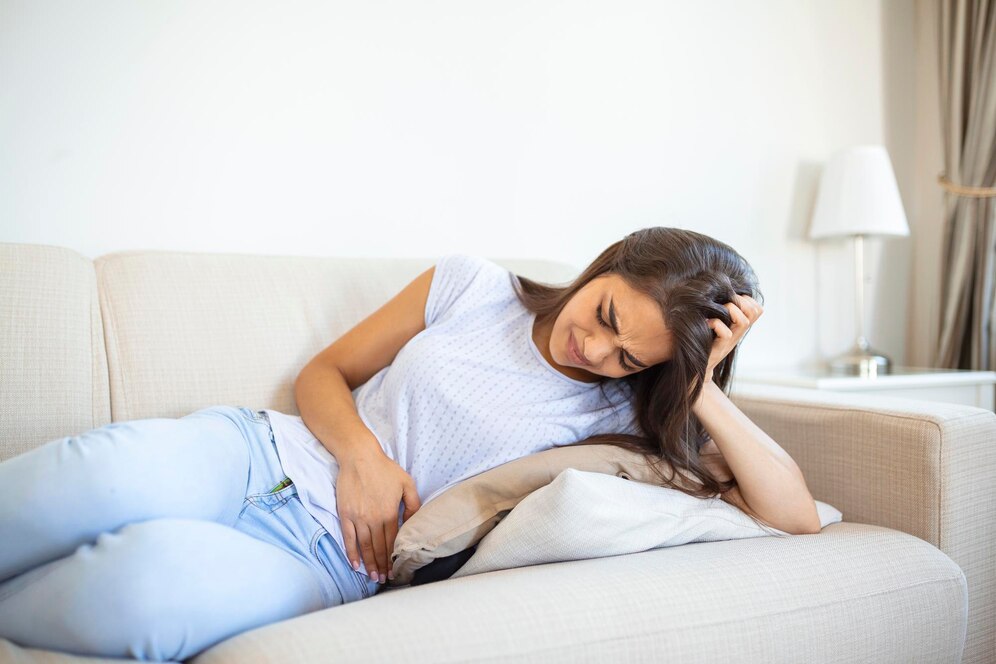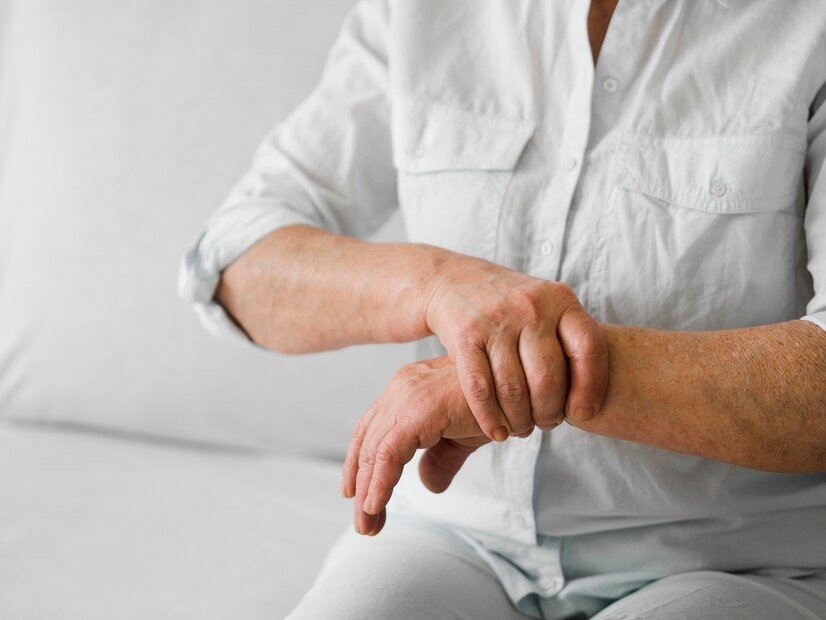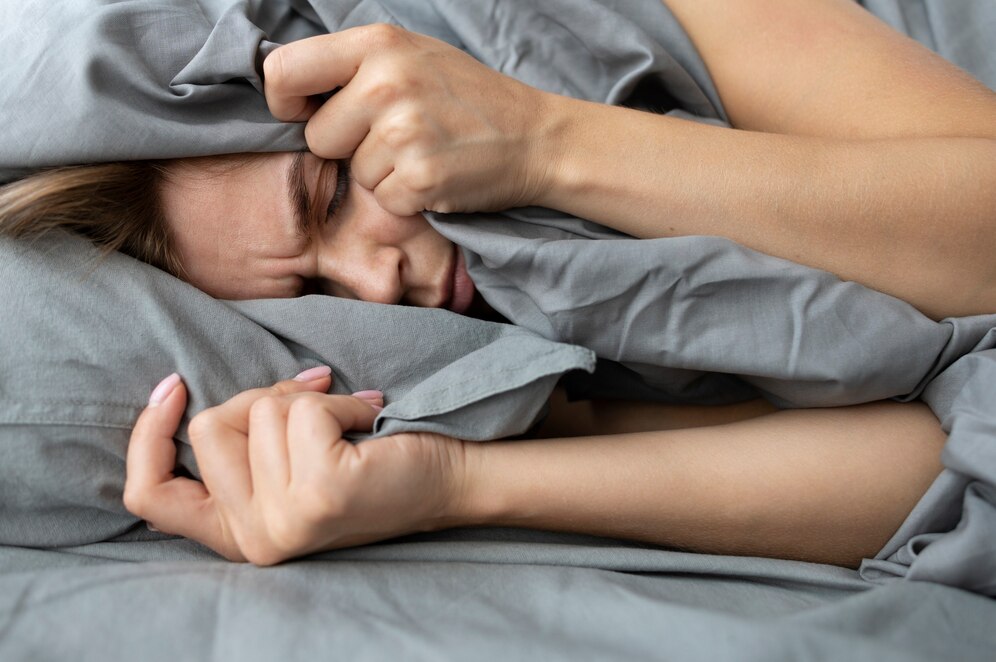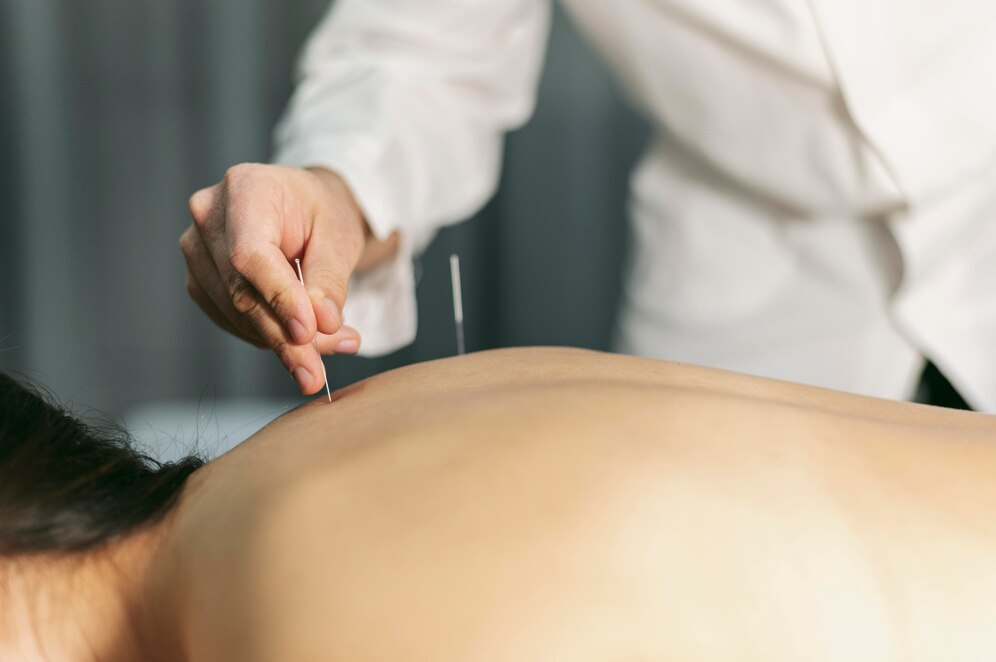Key Takeaways
— Acupuncture can trigger detox symptoms such as headaches, fatigue, or digestive issues as the body releases toxins and restores balance.
— The detox process happens naturally as acupuncture improves circulation, lymphatic drainage, and organ function.
— Symptoms are usually temporary and a sign that the body is healing, lasting from a few hours to a few days.
— Hydration, rest, and gentle movement can help manage detox reactions and support recovery.
After an acupuncture session, you might experience some unexpected side effects, like headaches, fatigue, or even digestive changes. But don’t worry; these detox symptoms indicate that your body is actively healing. Acupuncture stimulates circulation and lymphatic drainage and improves organ function, helping to release accumulated toxins.
While these reactions may feel a bit uncomfortable, they’re normal and temporary, signaling that the body is restoring balance and vitality. So, sit back, relax, and trust the process – your body is detoxing in the best way possible! But what are the most common detox symptoms after acupuncture, and how to manage them? Read on to find out!
Detox Symptoms After Acupuncture
Acupuncture provides numerous benefits, from pain relief to increased energy and mental clarity. However, as the body adjusts, some individuals experience detox symptoms, such as headaches, fatigue, mild nausea, emotional shifts, or temporary flu-like symptoms. These reactions occur because acupuncture stimulates circulation, helping the body release built-up toxins.
Not everyone experiences these symptoms, and their intensity varies. Some feel revitalized immediately, while others need time to adjust. If discomfort arises, staying hydrated, getting adequate rest, and giving your body time to rebalance can help. These temporary effects often signal that healing is in progress.
Fatigue and drowsiness
Acupuncture stimulates the body’s natural healing processes, which can leave some people feeling unusually tired. This happens because energy is shifting, circulation is improving, and the nervous system is relaxing.
Fatigue may include sleepiness, low energy, or a sluggish feeling that lasts a few hours to a couple of days. This is usually a sign that the body is recalibrating. To support recovery, prioritize rest, drink plenty of water, and avoid caffeine or strenuous activity. Gentle movement, such as stretching or walking, can help rebalance energy levels.
If fatigue persists beyond a few days, it’s worth checking in with your acupuncturist to assess your body’s response.
Headaches
Post-acupuncture headaches are often linked to increased circulation and toxin release. As blood flow improves and tension releases, the body might experience temporary discomfort. These headaches can feel dull, heavy, or mildly throbbing and usually last a few hours to a day.
Dehydration can worsen symptoms, so drinking water is crucial. Resting in a calm environment, limiting screen time, and practicing deep breathing can also help. If headaches are intense or persistent, consulting your acupuncturist may be beneficial, as treatment adjustments can sometimes alleviate this side effect. Most headaches subside quickly, leaving patients feeling clearer and more balanced.
Digestive changes
Acupuncture affects the digestive system by stimulating gut motility and improving circulation. Some individuals may experience bloating, mild cramps, or temporary changes in bowel movements, such as diarrhea or constipation. These reactions happen as the body eliminates toxins and adjusts to new energy flows.
Symptoms usually resolve within a few days. Eating light, easily digestible foods and staying hydrated can help. Additionally, herbal teas like ginger or peppermint may soothe the stomach. If symptoms persist or become severe, consulting your practitioner is recommended to adjust the treatment as needed.
Nausea or vomiting

Nausea after acupuncture is uncommon but can occur due to increased detoxification and nervous system activation. Some individuals may feel slightly queasy, dizzy, or, in rare cases, experience vomiting.
This reaction is temporary and usually resolves within a few hours. It’s often linked to shifts in circulation, changes in energy flow, or emotional releases triggered by treatment.
Drinking warm water, lying down, and taking deep breaths can ease discomfort. Eating a small, protein-rich snack before a session may also help prevent nausea. If symptoms persist beyond a day, discussing it with an acupuncturist can help modify treatment as needed.
Skin breakouts
Acupuncture can stimulate the body to expel toxins through the skin, sometimes leading to temporary breakouts. These may appear as pimples, mild rashes, or itchiness, especially in individuals with sensitive skin or pre-existing conditions. Symptoms typically clear up within a few days as the body clears out impurities.
Maintaining a gentle skincare routine, avoiding heavy products, and staying hydrated can support skin recovery. Aloe vera or herbal remedies may also soothe irritation. While breakouts can be frustrating, they’re usually a sign that the body is eliminating impurities, leading to clearer skin in the long run.
Body aches and soreness
Some individuals experience mild body aches or soreness after acupuncture, similar to the feeling following a deep tissue massage. This occurs as the muscles, fascia, and nervous system respond to treatment. Areas that were tense or blocked may temporarily feel sore as circulation improves.
Symptoms usually last one to two days and resolve on their own. Applying heat packs, taking warm baths, and practicing gentle stretching can help ease discomfort. Staying hydrated is also key, as it supports muscle recovery and helps flush out toxins. If soreness persists or becomes severe, a follow-up with an acupuncturist may be beneficial.
Nerve twitches or muscle spasms

Acupuncture can activate the nervous system, sometimes leading to brief muscle twitches or spasms. These involuntary movements indicate nerve activation and improved neuromuscular response. Twitches may occur during or after treatment, usually lasting for a few hours to a day.
Consuming magnesium-rich foods, staying hydrated, and incorporating gentle stretching can help relax muscles. If twitches are bothersome, applying light massage or warm compresses may provide relief. These symptoms usually subside quickly, leaving muscles feeling relaxed and balanced. If they persist, adjusting acupuncture techniques may be necessary.
Mood swings or irritability
Emotional shifts after acupuncture are common due to its effects on the nervous system and hormonal balance. Some individuals feel calm and uplifted, while others may experience mood swings, irritability, or heightened emotional sensitivity. This reaction occurs as emotional blockages are released and typically lasts a day or two.
Journaling, mindfulness, and deep breathing exercises can help process these emotions. Drinking warm herbal tea and engaging in relaxing activities can also promote emotional balance. If mood swings persist beyond a few days, consulting an acupuncturist may help adjust treatments to better support emotional well-being.
Anxiety or emotional sensitivity
Acupuncture can heighten emotional sensitivity or trigger unexpected emotional releases as it regulates the nervous system. Some may feel anxious or emotionally overwhelmed due to the release of stored tension. Symptoms are usually short-lived, resolving within a day or two.
Calming activities like meditation, nature walks, or breathing exercises can ease emotional shifts. Allow emotions to surface without resistance, as this is an important part of the healing process. If anxiety lingers, adjusting acupuncture techniques or incorporating additional grounding treatments may help.
Changes in sleep patterns

Acupuncture helps regulate sleep, but in the short term, it may cause temporary disruptions. Some individuals feel unusually drowsy, while others experience restlessness or vivid dreams. These effects are linked to nervous system adjustments and changes in circulation and energy flow as the body rebalances. Symptoms typically balance out within a few nights.
Establishing a bedtime routine, limiting caffeine intake, and practicing relaxation techniques can support better sleep. If sleep disturbances persist, the acupuncturist can modify treatment to promote deeper, more restorative rest.
Why Does Acupuncture Trigger Detox Symptoms?
Acupuncture stimulates circulation and the body’s natural energy flow, known as Qi. When Qi stagnation occurs, it can lead to imbalances that affect physical and emotional well-being. By strategically inserting fine needles, acupuncture restores proper energy movement, helping the body function more efficiently.
One key effect of acupuncture is improved blood circulation and lymphatic drainage. This process helps flush out accumulated toxins, metabolic waste, and excess fluids. As these substances are released, the body may temporarily respond with symptoms like headaches, fatigue, or digestive changes – similar to a mild detox reaction.
Acupuncture also influences the nervous system, shifting the body from a stressed state (sympathetic mode) to a relaxed, healing state (parasympathetic mode). This transition can trigger physical and emotional adjustments, sometimes leading to temporary discomfort as the body rebalances.
Detox reactions are typically short-lived, lasting anywhere from a few hours to a couple of days. They are a sign that the body is healing and adjusting to improved function. Staying hydrated, getting enough rest, and allowing the process to unfold naturally can help ease any temporary discomfort.
How Long Do Detox Symptoms Last?

The duration of detox symptoms after acupuncture varies from person to person. Mild reactions, such as fatigue, headaches, or digestive changes, typically last a few hours to a couple of days. Some individuals feel completely fine within 24 hours, while others may notice subtle shifts for up to a week. The body gradually adapts to the treatment, and symptoms usually fade when balance is restored.
Several factors influence how long these reactions last, including overall health, hydration, diet, toxin buildup, and sensitivity to acupuncture. Those who stay well-hydrated, eat a nutrient-rich diet, and have good circulation often experience shorter, milder symptoms. In contrast, individuals with high toxin loads or chronic health conditions may notice detox effects for a longer period.
Most symptoms resolve on their own, with relief typically setting in after a day or two. However, if discomfort persists beyond a week, becomes severe, or interferes with daily life, it’s best to consult an acupuncturist or healthcare provider. In some cases, prolonged symptoms indicate an underlying issue that requires further attention.
How to Manage and Reduce Detox Symptoms
Managing detox symptoms after acupuncture is all about supporting your body’s natural healing process. Simple lifestyle adjustments can help ease discomfort and speed up recovery.
— Stay hydrated: Drinking plenty of water helps flush out toxins and reduces headaches, fatigue, and muscle soreness. Herbal teas and electrolyte-rich drinks can also aid hydration.
— Eat nutrient-rich foods: Whole foods like fruits, vegetables, lean proteins, and healthy fats supply the necessary nutrients to support detoxification. Meanwhile, processed foods, caffeine, and alcohol can intensify symptoms.
— Rest and listen to your body: Fatigue is common, so prioritize sleep and relaxation. Your body heals best when well-rested.
— Incorporate gentle movement: Light activities like walking, stretching, or yoga help circulate Qi, reducing stiffness, soreness, and digestive sluggishness.
— Take Epsom salt baths: These can relax muscles, soothe aches, and support detoxification through the skin, making them beneficial for soreness, tension, or skin breakouts.
These methods work well for mild, temporary symptoms. However, if you experience severe pain, prolonged nausea, persistent dizziness, or extreme fatigue for more than a week, seeking professional help is recommended. An acupuncturist can adjust treatment or recommend additional support based on your body’s response.
Wrapping Up
Experiencing mild detox symptoms after acupuncture is completely normal—it’s just your body adjusting and clearing out toxins. While symptoms like fatigue, headaches, or digestive shifts can be a little annoying, they’re usually short-lived and manageable with rest, hydration, and proper nutrition. Gentle movement and relaxation techniques can also help speed up recovery.
Trust the process, listen to your body, and don’t hesitate to reach out to your acupuncturist if anything feels off. Acupuncture is a powerful healing tool, and temporary discomforts often lead to long-term benefits.
Curious to learn more? Consider starting your career in acupuncture at the American Institute of Alternative Medicine (AIAM). Explore our programs and discover how this ancient practice continues to transform health and well-being!
Frequently Asked Questions (FAQs)
Does your body release toxins after acupuncture?
Yes, acupuncture can stimulate the release of toxins by improving circulation and lymphatic drainage. This helps the body flush out accumulated waste, which may result in temporary detox symptoms like fatigue or headaches.
What is the “healing crisis” after acupuncture?
The healing crisis refers to temporary discomfort or detox symptoms that may arise 24 to 48 hours after acupuncture as the body adjusts and heals. It’s a sign that the treatment is working, helping the body expel toxins and restore balance. These symptoms typically resolve within a few days.